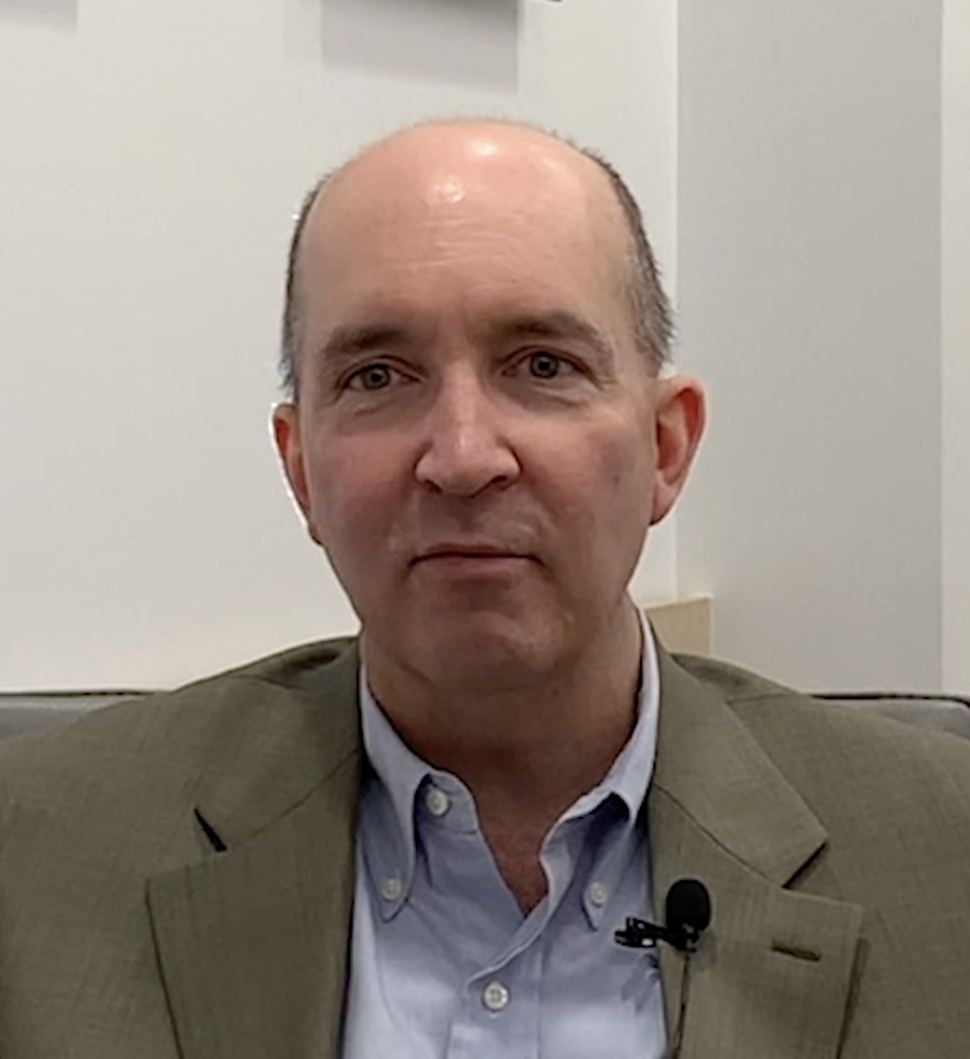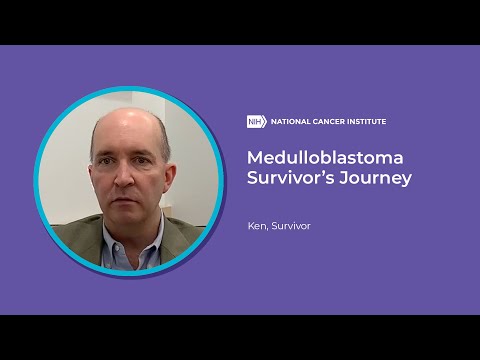Medulloblastoma Survivor Shares 5 Tips to Overcome a Rare Diagnosis
, by Ken, Medulloblastoma Survivor
Ken is an 18-year survivor of a rare tumor. Although his treatments caused long-term side effects, he shares why he believes he is lucky to be alive.
In 2002, at 32 years old, I was diagnosed with a medulloblastoma, a type of rare brain cancer. I was serving as a lawyer in the United States Navy at the time and having terrible headaches. I visited the doctor multiple times. Then, one Saturday night the pain was so intense that I went to the emergency room (ER).
I had a computerized tomography (CT) scan in the ER. The attending doctor came in and showed me the results. There was a big white blotch on my scan. I am not a doctor, but I thought, “That doesn’t look cool.” The doctor called the neurosurgeon who told me not to leave. “I’ll be there soon," the neurosurgeon said. "Heaven forbid he falls into a coma. It is going to be a lot harder to operate on him.”
I had a full surgical resection to remove the medulloblastoma in the back of my head near my cerebellum. My care team in the military—a neurosurgeon, oncologist, and radiologist—had collectively seen one medulloblastoma in an adult in their careers. After surgery, I was referred to reputable hospitals for second opinions and the consensus was chemotherapy and max dose radiation.
Now, I am 50 years old. I retired from the Navy in 2016 and started working for the United States Department of Justice in 2018. That’s how I found NCI-CONNECT. I was referred there by my neuro-oncologist, Brett Theeler, M.D., from Walter Reed National Military Medical Center. Now, I have the opportunity to be part of research to make treatments better for people with rare brain and spine tumors.
I don’t drive because of damage to my optic nerve. I have slightly slurred speech, and my short-term memory is not what I want it to be. But I am lucky to be alive. Here is my advice to others who are recently diagnosed.
- Be hopeful and positive. Be optimistic and hopeful. Pessimism will kill you. I completely understand that a rare brain or spine tumor diagnosis is a stunning thing that happened to you. But if you don’t go at it strong and with a positive attitude, there will be trouble. I am very fortunate to be alive. I know that every single day I am blessed to be here. It reminds me of a recent Medal of Honor recipient who said, “Every day is a bonus.”
- Find support. After my diagnosis, my mom and dad came and stayed with me the whole time I was in the intensive care unit. When I left the hospital, a friend took me in. I had family (brother, sister, nephews, and nieces) and friends come over every day to check on me at home. A lot of family and friends visited me when I was in the hospital, too. The Navy also sent someone over to my house every day to check on me or have lunch with me. I jokingly called this the “death watch,” but it really wasn’t. It was to make sure I was OK, and I was very grateful for it. I am sure that if I didn’t have support, I would have died.
- Stay informed. I was fortunate to receive a lot of good information when I was diagnosed and to be referred to great places. Doctors should speak to you in non-doctor language, so you can understand your diagnosis and treatment options. I am a lawyer, so when I talk to people who aren’t lawyers, I speak in non-lawyer terms. If you don’t understand, ask questions. I also moved around to different hospitals based on where I was deployed. At each location, I made sure I had someone to monitor me.
- Focus on being healthy. When I was diagnosed, I was fortunate to be in the best physical shape I could be. I was running half marathons, and I think that was important to help with recovery from surgery and the side effects of my treatments. Chemotherapy and radiation can be hard and toxic on your body. I call chemotherapy the poison that saves you. I also found that acupuncture helped stop my vomiting, at least for a little while.
- Appreciate your care team. Once a year I send a card to my doctors to thank them for everything they have done for me. I would definitely not be alive without them. Also, be patient with your doctors. I realized at one of my appointments that the reason I had to wait so long to see my doctor was because he was spending time talking to his patients and allowing them to ask questions. I now accept my doctors taking all the time they need to talk to others.
In closing, anything I can do to help find a cure, I will do. My side effects are a small price to pay to be alive.

